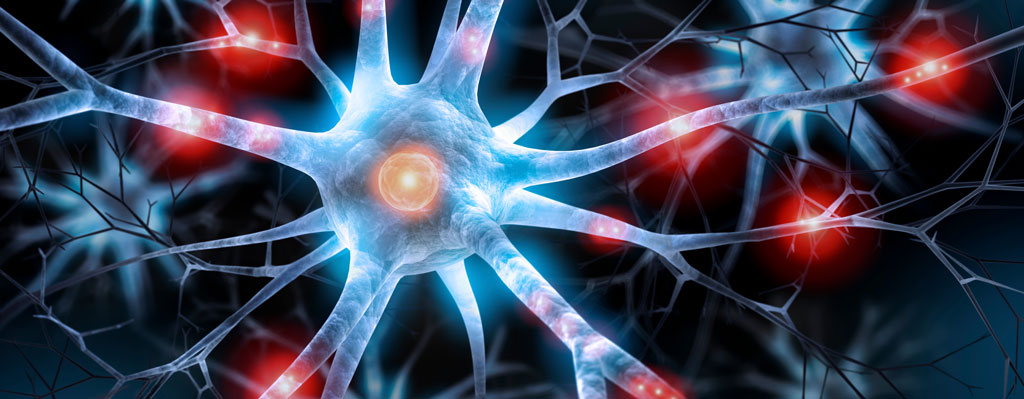
NEW! THE BRAIN-GUT CONNECTION
A Five-Part Audio-only Series
for People Suffering from Irritable Bowel Syndrome (IBS) and Other Disorders of Gut-Brain Interaction (DGBI) like Chronic Constipation, Functional Dyspepsia, and Cyclic Vomiting.
ABOUT THIS WEBINAR SERIES
Learning how to heal your gut and body starts with an understanding of the role your nervous system, especially your Autonomic Nervous System, plays in the generation, perpetuation, and exacerbation of digestive and other symptoms. The five-part Brain-Gut Connection Audio Series offers you (and your parents or loved ones) an education in the mind-gut and mind-body connection. This is the essential information Dr. Franklin wishes she had had back when she was suffering from IBS.
By registering for the Brain-Gut Connection Webinar Series, you will gain access to five audio parts, each containing under an hour of material, presented in the following order:
Audio Part 1: Autonomic Nervous System (ANS)— To understand how your Autonomic Nervous System (ANS) works, you first need to know what it is and its parts. There is more to the picture than just the Sympathetic and Parasympathetic Nervous Systems. Dr. Franklin will discuss the three components of the ANS.
Audio Part 2: Regulation & Dysregulation— The meat and potatoes of this series, this audio presentation explains how bodies function under conditions of healthy ANS regulation and offers a different way of thinking about IBS: IBS and other disorders of gut-brain interaction as well as mood-related or psychological symptoms like anxiety and depression are likely just symptoms of one larger problem—dysregulation.
Audio Part 3: Stress Response— People with digestive issues are often told to reduce stress in their lives. Easier said than done when stress is a normal part of life. This audio part addresses the relationship between stress and your body, specifically your gut, to help you to work with your ANS and body to promote healing given your body’s natural, normal stress responses.
Audio Part 4: Trauma— If Audio Part 2 is your meat and potatoes, Audio Part 4 is your serving of veggies, and it’s important to eat your veggies. Trauma is a sexy topic in the field of medicine and psychology right now and is highly relevant to IBS and other digestive (and non-digestive) symptoms. In this audio presentation, Dr. Franklin offers a broader definition of trauma and explains how the undigested, unmetabolized experiences in your life may relate to your digestive dysfunction.
Audio Part 5: Putting Parts 1-4 Together and Intro to Healing— In this audio part Dr. Franklin discusses what healing means when it comes to IBS and other DGBI/mind-body symptoms. The information contained in Parts 1 through 4 will be put together in a new way as she offers an overview of the healing process.
About Dr. Jennifer Franklin
Dr. Jennifer Franklin is an experiential, relational, somatic, and mindfulness-based psychologist dually licensed in North Carolina and California offering individual and couples therapy, teletherapy, and consultation. She worked at the UNC Center for Functional GI & Motility Disorders in Chapel Hill and specializes in healing functional medical problems, especially Disorders of Gut-Brain Interaction like IBS, along with issues associated with anxiety, panic, interpersonal relationships, attachment, and trauma. She has served as an associate editor for the Journal of Humanistic Psychology, has taught mindfulness/Vipassana meditation, and has been a long-time yoga practitioner.
NEW! THREE-PART HEALING AUDIO SERIES
Dr. Franklin created this series to help you to learn the process of mind-body transformation and give your gut and body the experience of healing.
ABOUT THIS AUDIO SERIES
If you suffer from Irritable Bowel Syndrome (IBS), cyclic vomiting, chronic constipation, functional dyspepsia, or some other kind of Disorder of Gut-Brain Interaction (DGBI), also known as a digestive Psychophysiologic Disorder (PPD), this three-part audio series is for you. Listen and learn how to help your gut and body to heal by addressing the nervous system dysregulation underlying your physiological symptoms. You can recover from DGBI and other PPD if you know how to give your nervous system what it needs to get regulated or re-regulated.
When you sign up for this audio series, you will receive links to listen to the following three presentations:
Part One: Learn About Your Nervous System
Your nervous system is always serving its primary job of keeping you alive and free from harm, yet your nervous system plays an important role in the generation, perpetuation, and exacerbation of your physiological symptoms. Learn about the “tangled web of dysfunction” and the nervous system dysregulation at the root of your medically unexplained symptoms. This presentation offers information about your nervous system so that you can work with it, not against it, in order to heal your gut and body.
Part Two: Get Into a Healing Mindset
In preparation for the psychotherapeutic action steps you will take on your healing journey, learn about the twelve principles to help you to get into a healing mindset. These principles represent the nuts and bolts of healing, orienting your thinking toward unraveling the tangled web of dysfunction and promoting nervous system regulation with gentleness, patience, and compassion.
Part Three: Get Healing
Learn about the ten transformational processes involved in the psychotherapeutic healing of your gut and body so that you can help to catalyze healing for yourself or expedite your healing in psychotherapy. These processes form the basis for the action steps you can take to unravel the tangled web of dysfunction and promote nervous system regulation so that your gut and body can heal.
In this audio series, you will be presented with about three hours of valuable educational listening material on Dr. Franklin’s mind-body approach to healing and recovery. Listening to this audio program while working with a psychotherapist is recommended. If you are currently working with a psychotherapist, this educational listening program will maximize the effectiveness and efficiency of your therapy. If you are not currently working with a psychotherapist, this material offers insight into the psychotherapeutic healing process. If you wish to get started on your own, please make sure you have sufficient emotional and social support.
THE BRAIN-GUT CONNECTION
A Five-Part Webinar (or Audio) Series
for People Suffering from Irritable Bowel Syndrome (IBS) and Other Disorders of Gut-Brain Interaction (DGBI) like Chronic Constipation, Functional Dyspepsia, and Cyclic Vomiting.

ABOUT THIS WEBINAR SERIES
After twenty years of working in private practice with patients who have a wide range of gut-brain (and other mind-body) disorders, Dr. Franklin has a solid understanding about how healing happens and how to facilitate it psychotherapeutically. She is ready and eager to share what she knows with you!
Learning how to heal your gut and body starts with an understanding of the role your nervous system, especially your Autonomic Nervous System, plays in the generation, perpetuation, and exacerbation of digestive and other symptoms. The five-part Brain-Gut Connection Webinar Series offers you (and your loved ones) an education in the mind-gut/body connection. This is the essential information Dr. Franklin wishes she had had back when she was suffering from IBS.
By registering for the Brain-Gut Connection Webinar Series, you will gain access to five webinars, each containing about an hour of material, presented in the following order:
Webinar 1: Autonomic Nervous System (ANS)— To understand how your Autonomic Nervous System (ANS) works, you first need to know what it is and its parts. There is more to the picture than just the Sympathetic and Parasympathetic Nervous Systems. Through the lens of Polyvagal Theory, the “science of safety,” Dr. Franklin will discuss the three parts / four components of the ANS.
Webinar 2: Regulation & Dysregulation— The meat and potatoes of this series, this webinar explains how bodies function under conditions of healthy ANS regulation and offers a different way of thinking about IBS: IBS and other functional medical problems as well as mood-related or psychological symptoms like anxiety and depression are likely just symptoms of one larger problem—dysregulation.
Webinar 3: Stress Response— People with digestive issues are often told to reduce stress in their lives. Easier said than done when stress is a normal part of life. This webinar will address the relationship between stress and your body, specifically your gut, to help you to work with your ANS and body to promote healing given your body’s natural, normal stress responses.
Webinar 4: Trauma— If Webinar 2 is your meat and potatoes, Webinar 4 is your serving of veggies, and it’s important to eat your veggies. Trauma is a sexy topic in the field of medicine and psychology right now and is highly relevant to IBS and other digestive (and non-digestive) symptoms. In this webinar Dr. Franklin offers a broader definition of trauma and explains how the undigested, unmetabolized experiences in your life may relate to your digestive dysfunction.
Webinar 5: Putting Parts 1-4 Together and Intro to Healing— In this webinar Dr. Franklin discusses what healing means when it comes to IBS and other DGBIs/functional medical problems. The information contained in Webinars 1 through 4 will be put together in a new way as she offers an overview of the healing process.
About Dr. Jennifer Franklin
Dr. Jennifer Franklin is an experiential, relational, somatic, and mindfulness-based psychologist dually licensed in North Carolina and California offering individual and couples therapy, teletherapy, and consultation. She worked at the UNC Center for Functional GI & Motility Disorders in Chapel Hill and specializes in healing functional medical problems, especially Disorders of Gut-Brain Interaction like IBS, along with issues associated with anxiety, panic, interpersonal relationships, attachment, and trauma. She has served as an associate editor for the Journal of Humanistic Psychology, has taught mindfulness/Vipassana meditation, and has been a long-time yoga practitioner.

